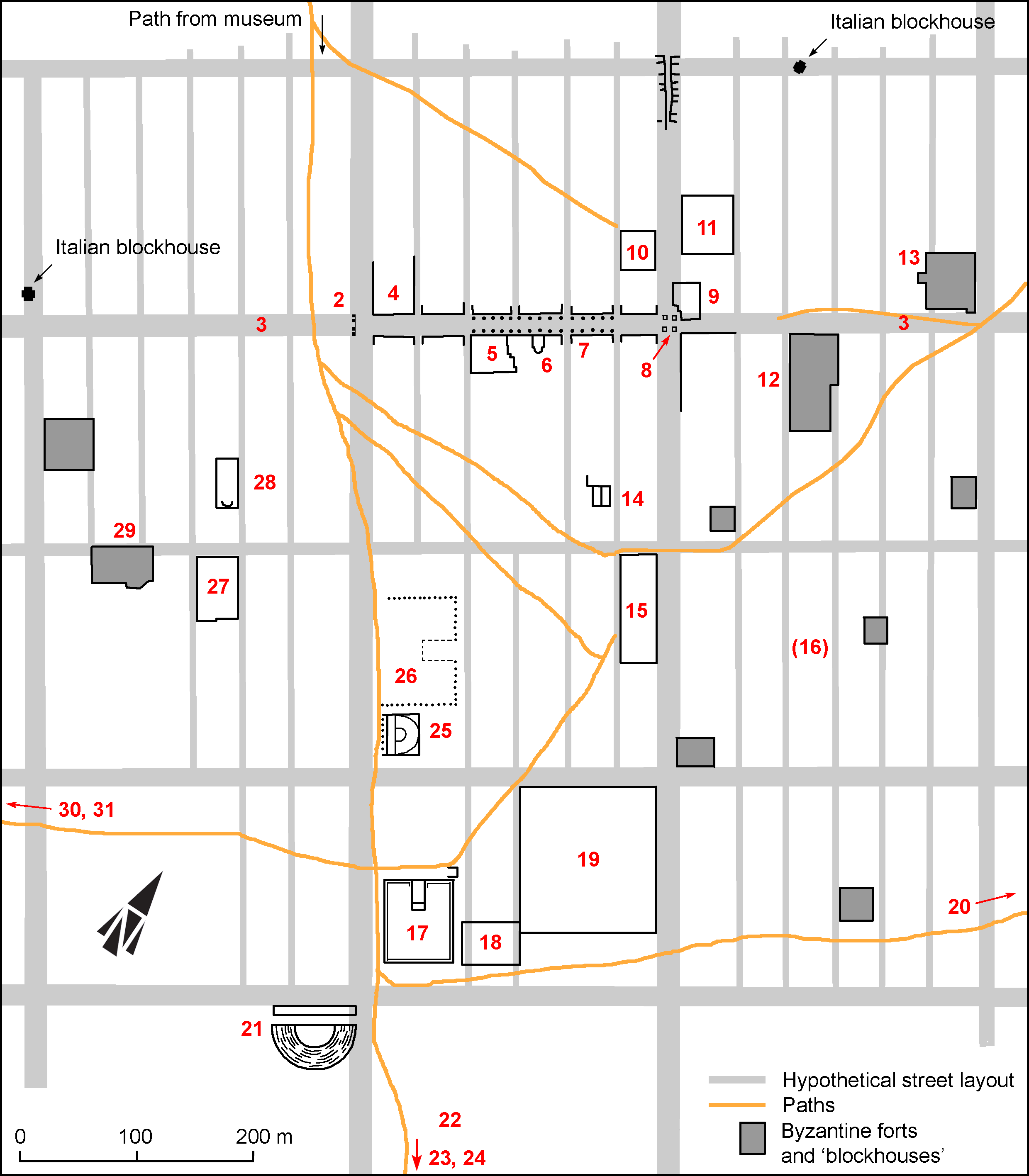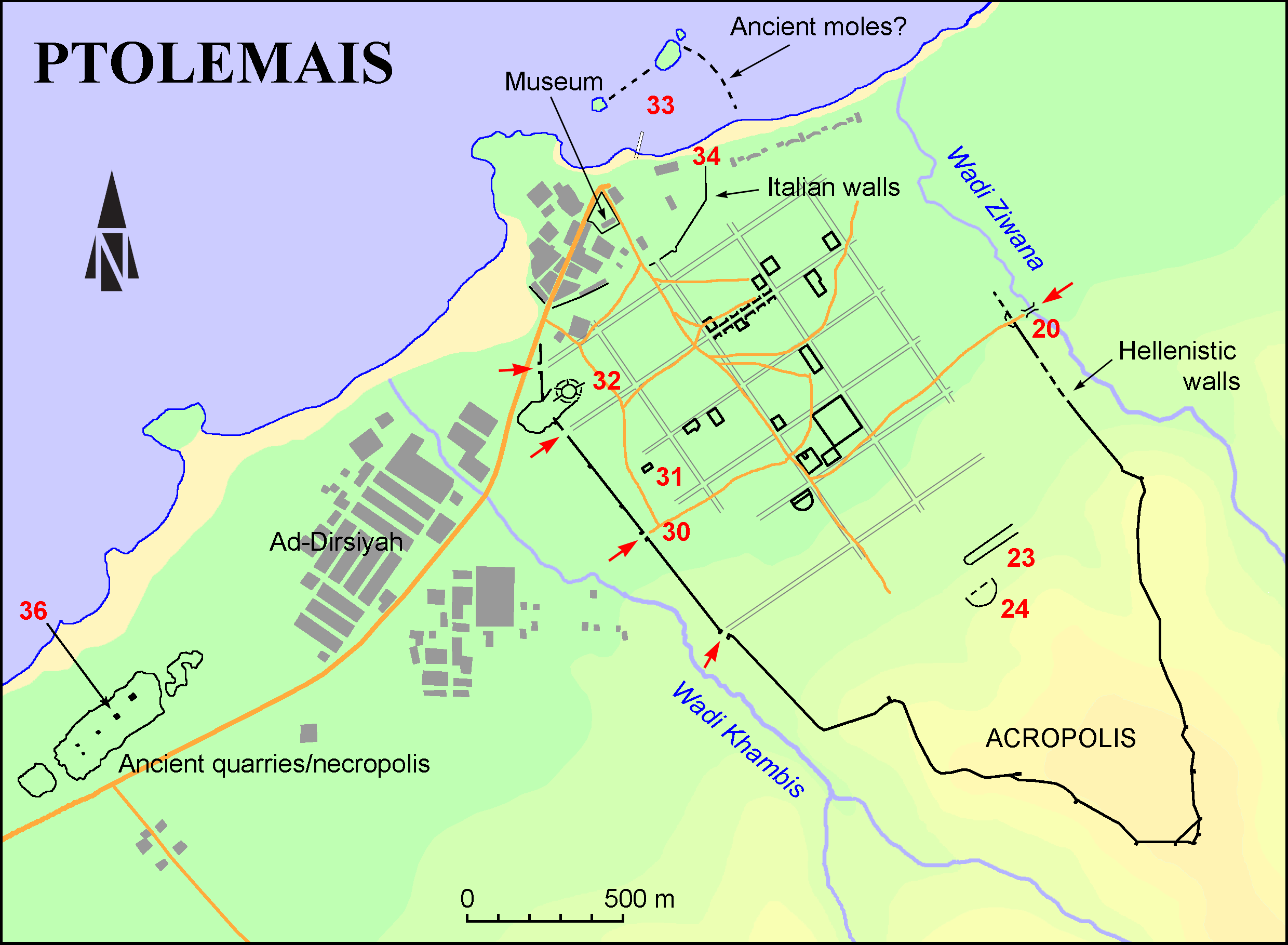EpiDoc XML:
GVCyr0462
Trismegistos ID:
738936
Source description
Support: Sandstone block (w: 0.425 × h: 0.25 × d: depth not measurable). Probably cut down for re-use, since it is damaged along the upper and right edges; also chipped off at left.
Layout: Inscribed on the exposed face which is intermittently pitted and rubbed.
Letters: 0.015 - 0.02, very rough lettering; cursive epsilon, lunate sigma, square omega.
Date: Fourth or fifth century AD (lettering).
Findspot: Found in 1962 at Ptolemais ➚: re-used in an inner wall of the North-East quadrant of the crossroads with the Tetrastylon.
Place of origin: Ptolemais: original location unknown.
Last recorded location: Seen by J.M. Reynolds in 1962 in situ at Ţulmaythah, near the Tetrastylon. Not seen by GVCyr team.
Text constituted from: Transcription from J.M. Reynolds' copy (CDL).
Bibliography
Not published before GVCyr 046 ➚, whence SEG 67.1500.
Text
French translation
[---] telle tu t'avanças près de ton époux [---], quittant ta couche virginale [---], telle cette tombe te retient [---], pure de tous les [---] et maintenant du fait [des souffrances] des femmes [---].
English translation
[---] such you proceeded beside your husband [---], coming from your virgin's couch [---], such this tomb keeps you, [---], clear of all [---] and now because of the womens' [pains ---].
Italian translation
[---] quale incedevi accanto al tuo sposo [---], lasciando il tuo letto virginale [---], tale questa tomba ti racchiude, [---], pura da tutti i [---] e ora per le [sofferenze] delle donne [---].
Commentary
We follow J.M. Reynolds for the suggested date.
The vestiges allow to understand that this is a funerary poem for a young woman deceased very soon after her marriage. Either she did not share or she will for ever escape the toils assigned to married and pregnant women, which is commonly described in verse epitaphs.
At line 1 the idea might be that coming from her father's home she settled with her husband.
At line 2 we restore λ[έχους] on behalf of Eur. Tr. 676.
At line 4, instead of καί one should perhaps read either και[ρῶν] or κακ̣[ῶν].
Metrical analysis: this fragmentary poem offers two types of meters: iambic catalectic trimeters are followed by dactylic segments that seem to be hemiepes (half pentameter). On this basis we calculated the lost parts at the end of verses, assuming that we had one line per verse. However this reconstruction is far from sure.
CC BY-NC-SA 4.0 Deed Attribution-NonCommercial-ShareAlike 4.0 International License.
All citation, reuse or distribution of this work must contain a link back to DOI: https://doi.org/10.60760/unibo/igcyrgvcyr2 and the filename (IGCyr000000 or GVCyr000), as well as the year of consultation.


